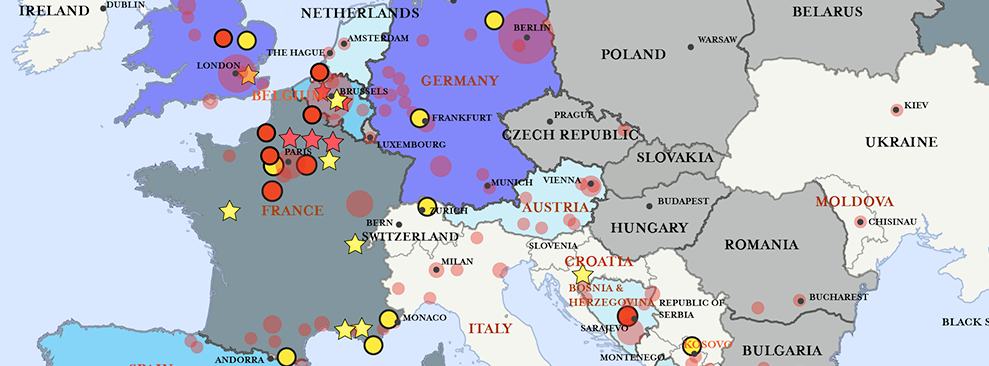Here comes the Mosul offensive…
What about the Authorization for Use of Military Force? (AUMF) Here is the text Barack Obama sent to Congress last year.
The first sentence uses the word ‘limited’.
Report: 21 Generals Heading ISIS Fight in Iraq
FreeBeacon: Twenty-one generals, a majority of them American, are heading the fight against ISIS in the Middle East, according to a report Thursday. These include at least 12 U.S. generals currently based in Iraq.The Daily Beast reported:
There is the three-star general in charge of the war, Army Gen. Sean MacFarland, and his two deputies, one of whom is in Iraq at any given time. There is the two-star Army general in charge of the ground war, Army Maj. Gen. Gary Volesky, and his two deputies, who also travel between Iraq and Kuwait. There is the two-star general in charge of security cooperation–things like military sales–and his deputy. Then there are the one-star generals in charge of intelligence, operations, future operations, targeting, and theater support. There also are an untold number of Special Forces commanders in the battlefield whom the military does not speak publicly about; the dozen figure presumes at least one one-star Special Forces general.
When taken with the count of generals based in nations like Bahrain and Kuwait to help support the mission, the generals in charge of the U.S. Air Forces Central Command, the Marine Corps Forces Central Command, and the Naval Forces Central Command based stateside, and the generals from dozens of countries belonging to the anti-ISIS coalition, the count rises to at least 21.
There are officially only 3,870 American troops in Iraq, though military officials privately indicated earlier this month that approximately 5,000 troops are operating in Iraq to assist the fight against ISIS. By this estimate, there are just over 416 troops for every single general.
Defense officials defended the count of generals in conversations with the Beast. “When you look at what they do and what they are in command of and how they provide support, I think it is justifiable,” an unnamed defense official said.
Despite the significant number of generals and increased American presence in Iraq and Syria, the Obama administration has repeatedly insisted that American troops are not engaged in combat operations against ISIS.
In one of the more recent developments in the fight against ISIS, the Pentagon secretly established a Marine fire base not far from Mosul, which serves as the first independent U.S. military position in the battle against the terror group. The existence of the fire base was only revealed after it came under attack from ISIS and one of the Marines based there was killed. The Pentagon has insisted that the Marines will only provide force protection for Iraqi and Kurdish troops there.
Concerns about ISIS have precipitated increased support for American combat operations in Syria and Iraq. The terror group has claimed responsibility for attacks in Paris, and more recently Brussels, and is also believed to have inspired the gun attack in San Bernardino, California, last December.
*****
FNC: The Islamic State, despite being driven by Kurdish fighters from its one-time Syrian stronghold in Kobani last week, nevertheless is extending its reach well beyond Iraq and Syria, military officials and analysts warn — represented, by some estimates, in nearly a dozen countries.
Lt. Gen. Vincent Stewart, director of the Defense Intelligence Agency, delivered a grim assessment earlier this week in testimony to the House Armed Services Committee, as he described how the group was surfacing in North Africa.
“With affiliates in Algeria, Egypt, Libya, the group is beginning to assemble a growing international footprint that includes ungoverned and under governed areas,” Stewart said.
ISIS continues to hold a wide swath of territory, bigger than the state of Pennsylvania, in its home base spanning parts of Iraq and Syria, propped up by more than 20,000 foreign fighters from at least three dozen countries. But the terror network’s tentacles, as Stewart indicated, are creeping into other nations; largely those with fragile governments.
“ISIS, like Al Qaeda, has thrived in the failed states where there is a vacuum of power,” said James Phillips, Middle East senior research fellow with the Heritage Foundation.
A key worry is the group’s potential ambitions in Afghanistan, where the U.S. combat mission just ended and Afghan security forces are in control.

